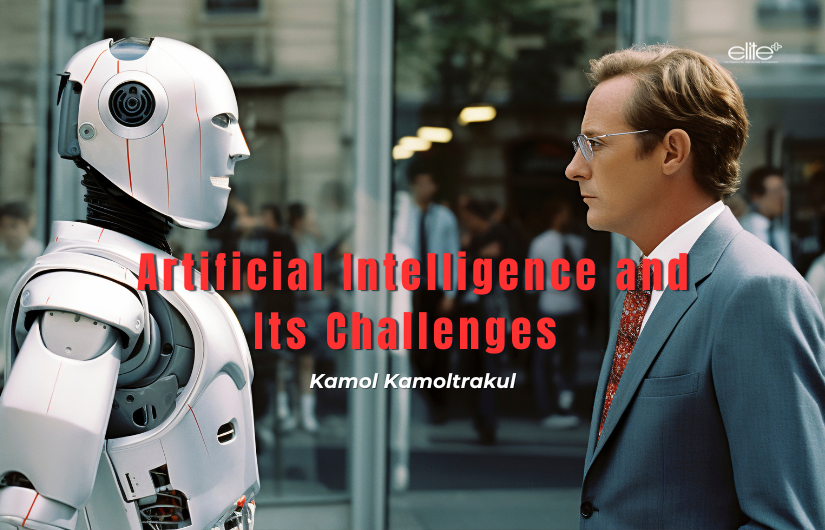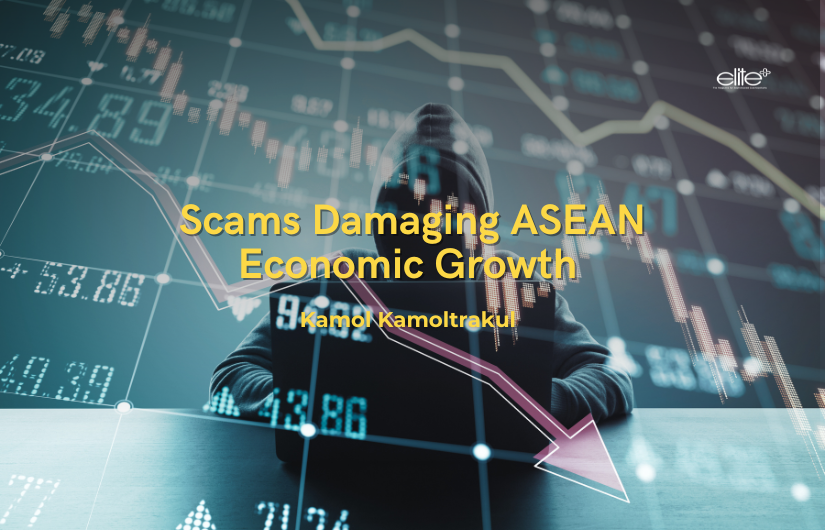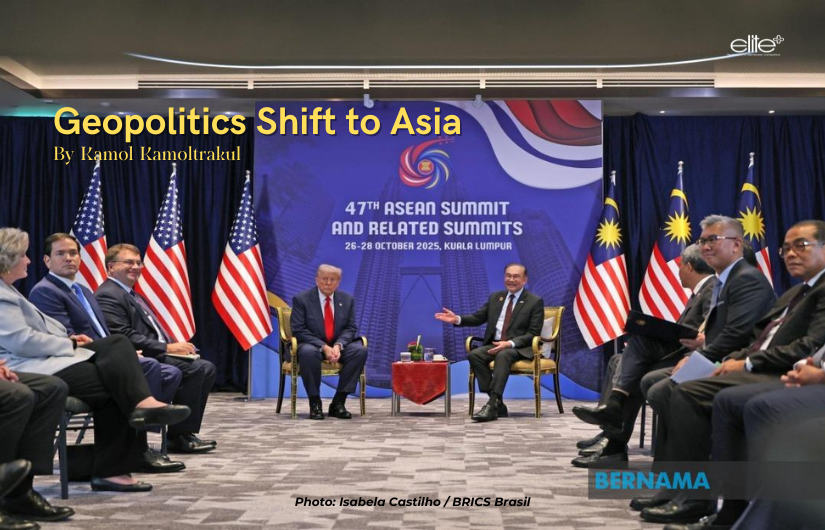Artificial Intelligence and Its Challenges

Threat or opportunity, like it or not, in today’s fast changing technological world, we can’t deny that AI has become a part of our daily life. Mobile phones, TV remote controls, kitchen appliances and E-banking are all based on AI technology. Artificial intelligence (AI) is a revolutionary force transforming daily life, businesses, economies, and civilizations.
As we look ahead, it is critical to grasp the current status and future of Artificial Intelligence and predict the changes it will bring, as well as prepare ourselves to harness its promises responsibly and ethically. Artificial intelligence (AI) has already shown a transformative power to change how we learn, work and live, it will continue to influence how humans and machines collaborate now and in the future.
AI technology comprises Generative AI, which is a subset of deep learning. Generative AI models are often built using deep learning AI that include deep learning and Generative AI, which are related but distinct concepts. Deep learning is a subfield of machine learning that uses artificial neural networks with multiple layers to learn from data.
Generative AI, on the other hand, is a type of artificial intelligence that can create new content, often based on learned patterns in data. While deep learning provides the foundation for many generative AI models, Generative AI focuses on generating new content such as text, images or music, while deep learning can be used for various tasks, like image recognition or natural language processing.
Although deep learning and Generative AI promises increased efficiency and innovation, behind artificial intelligence’s potential, it poses threats to various professions. It is feared that AI technology will make humans unemployed in the future. This has not taken long to become a reality. Several companies have started to cut employees. It is estimated that there will be a wave of layoffs of at least 44% throughout 2024 due to AI efficiency.
Economists have said that one of the main threats facing the world of work is the automation of routine and repetitive jobs. Intelligent AI systems can replace jobs that require repetitive and standardised tasks such as in the manufacturing and administrative sectors. Machines equipped with artificial intelligence are able to perform certain tasks more quickly and accurately than humans. AI also has the potential to result in job reductions in certain sectors.
AI can also threaten creative jobs. Computer programs trained to produce works of art or write news stories could replace the work of human artists and journalists. AI's success in imitating human creativity is a serious challenge that needs to be overcome. Companies that adopt AI technology may tend to reduce demand for human workers. In an effort to increase efficiency, some companies may turn to cheaper and more efficient automation systems, resulting in a decline in traditional employment.
It cannot be denied, advances in AI bring efficiency. The presence of intelligent machines can bring challenges in aspects of socialisation and human interaction. Jobs that require empathy, sensitivity to social context and communication skills may be less suited to automation, but remain crucial to the success of many professions. So, what solutions can overcome the AI threat? The first is through education and training, say experts.
Judith Wiese, Siemens Chief People and Sustainability Officer and board member, said there is a growing fear that humans will be replaced by machines and AI. At its best, AI should be used to empower people, to augment human intelligence and boost efficiency and productivity, not replace them.
Hence, governments are obligated to support AI education from primary schools to higher education. Educational institutions and companies need to work together to develop training programs that provide new skills to students and workers who may be impacted by automation in the future. A focus on developing human skills such as creativity, emotional intelligence and problem solving, can help workers compete internationally in the AI era.
The development and preservation of jobs that are difficult to automate could become a strategy to reduce the negative impact of AI on employment. Professions that require interpersonal intelligence, creative skills and moral judgment may be more resistant to automation. Governments need to take an active role in shaping policies that support society's adaptation to the changes brought by AI. This includes regulations that ensure worker protection and the creation of a business environment that promotes sustainability and fairness.
According to a UNDP report, integrating AI technology into the workplace in a way that supports human and machine collaboration is a positive approach. Workers can work together with AI systems to increase productivity and innovation while maintaining their critical role in complex decision making. Innovation and entrepreneurship can drive economic growth in the AI era. Encouraging the development of new technologies and creating previously unthinkable jobs can be a strategy to address shifts in the employment landscape.
A holistic approach through education, policy formation and the integration of technology with human wisdom can help reduce negative impacts and ensure that humans remain the primary driver of economic and social development. This challenge requires cross-sector collaboration and global commitment to achieve sustainable and inclusive solutions.
AI is currently on the verge of making significant advances. Currently, AI systems are capable of incredible feats, like defeating human champions in difficult games such as Go and Chess, or making personalised purchasing suggestions based on user behaviour. AI-powered virtual assistants have become household mainstays for many, easing daily activities and enhancing user experiences.
As said at the start of this article, while AI promises increased efficiency and innovation, it also holds threats to various professions. AI is presented as both a threat and an opportunity. While there are concerns about job displacement, misinformation and misuse, AI also offers opportunities for improved healthcare, transportation and addressing significant global challenges. Ultimately, the impact of AI will depend on how we choose to use and develop the technology.
Economists at the Davos World Economic Forum said AI enhances productivity. It can automate routine tasks, freeing up humans for more creative and complex work, leading to increased efficiency and economic growth. In health, AI can assist in drug discovery, diagnosis and personalised treatment plans, potentially improving patient outcomes.
Furthermore, AI provides sustainable solutions. It can help address climate change by optimising energy consumption, improving resource management and developing new technologies. While AI may automate certain tasks, it can create new roles in AI development, data analysis and other related fields, opening up new employment opportunities. AI can also provide personalised learning, AI-driven platforms can offer personalised learning experiences, helping individuals upskill and reskill for the future workforce.
In the final analysis, AI is an opportunity, not a threat. If we don't embrace it now, we will jeopardise our future. But tough ethical considerations must not be ignored. No amount of progress is worth it if it does not happen with purpose and good intentions, with people and for people, concluded Siemen’s Judith Wiese.

Kamol Kamoltrakul 48 Posts
Visiting lecturer: Navy Academy Institution, NIDA, School of Governor, Ministry of Interior, Chulalongkorn University, Former Lecturer, ABAC Honorary Advisor Trade and Industry Committee Senate. Senior advisor, Standing Committee on Finance and Banking, The House of Representative. Former Advisor to the Minister of Interior Board Member of ThaiPBS Board Member Of Thai Consumer Council Columnist : Prachachart Business Weekly, Matichon Weekly, Khom Chad Luke Daily Former Program Director Asian Forum for Human Rights and Development ( FORUM-ASIA).


































































































































































































































































































































































































































































































































































































































































































































































































































































































































